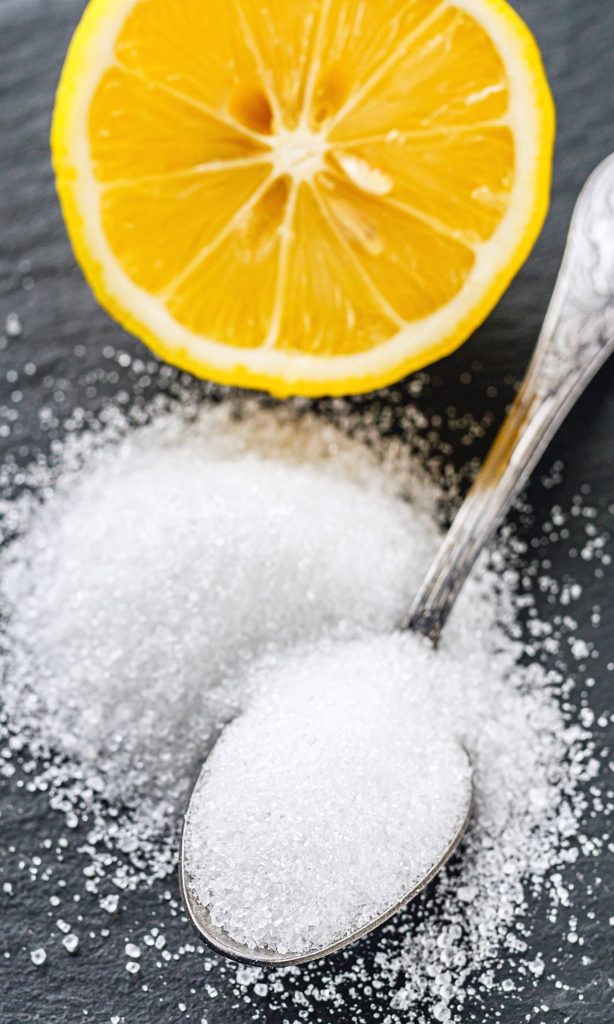Citric acid in dog food is a food additive mainly used as a preservative. It’s widely used and considered harmless.
Contents
What is Citric Acid?
Citric acid is a naturally occurring organic acid found in citrus fruits and berries but also occurs in animal tissue.
This fruit acid was discovered for the first time in lemon juice as early as 1784, hence the name.
Citric acid is one of the most widely distributed acids in the plant kingdom but is found as a metabolic product in all organisms. It plays a key role in carbohydrate and fatty acid metabolism.
Today, this chemical compound is industrially produced in bulk by Aspergillus niger fed with molasses or corn starch[2].
The FDA lists it as a general-purpose food additive[1]. It is not only versatile but also safe and affordable.

It is a white crystalline powder and is commonly used in the food industry as a preservative or flavor enhancer.
In dog food, citric acid is added to help preserve the food and maintain its freshness. It creates an acidic environment that inhibits the growth of bacteria, mold, yeast, and fungus.
Citric acid can also help to improve the taste and texture of products. So it’s common to find some citric acid in dog treats.
Citric Acid in Dog Foods
Citric acid is approved as a food additive in the European Union (E330) and in the United States.
It’s mostly used as a fat preservative and considered more “natural” compared to some other synthetic preservatives.
Citric acid is also used to chelate mineral elements and make them more bioavailable.
Potassium citrate, calcium citrate, or sodium citrate are mineral salts of citric acid that can also be used as preservatives in dog food.
Is Citric Acid Safe For Dogs?
Citric acid is generally recognized as safe[1].
Citric acid is a safe and commonly used ingredient in dog food. It is also approved for use in organic dog food.
A risk evaluation by the European authorities estimated that it would be safe up to 30000 mg of citric acid per kg of complete food, way more than is probably used in dog food anyway[3]!
But EFSA also voiced some doubts that citric acid is actually effective as a preservative in dry foods with less than 12% moisture.
A 2002 Purdue University study found a statistical link between foods containing, among other things, citric acid and canine bloat[4]. This caused a stir at the time because many people incorrectly assumed that citric acid somehow caused bloat. But remember that correlation is not the same as causation. And to date, there is no evidence that citric acid is harmful.
Citric acid in dog food is safe and helps preserve the food, and improves its taste and texture.
Further Reading
[1] CFR § 582.1033 Citric acid.
[2] Walid et al. Citric acid production by a novel Aspergillus niger isolate: II. Optimization of process parameters through statistical experimental designs. Bioresource Technology. 2007. https://doi.org/10.1016/j.biortech.2006.11.032
[3] FEEDAP Panel. Scientific Opinion on the safety and efficacy of citric acid when used as a technological additive (preservative) for all animal species. EFSA Journal. 2015. https://doi.org/10.2903/j.efsa.2015.4009
[4] Raghavan. Diet -related risk factors for gastric dilatation -volvulus in dogs of high -risk breeds: A nested case-control study. Purdue University. 2002. https://docs.lib.purdue.edu/dissertations/AAI3099198/
